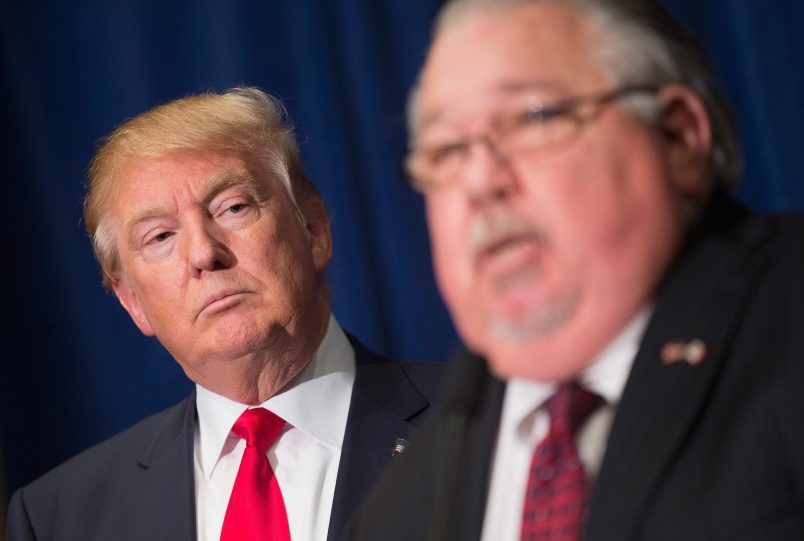I just finished listening to a CNN segment where “norms” figured heavily in the discussion. It was a good segment. I clipped a couple snippets of video because they were so good. But we need to stop talking so much about “norms”. And it’s not just CNN. The term has come up a number of times in our editorial conversations at TPM just today. I’ve talked about them. But we need to stop talking so much about norms. Because it doesn’t capture what is happening or the situation we’re in. In every kind of communication, clarity is the most important thing. By talking so much about “norms” and the violation of “norms” we’re confusing the situation and even confusing ourselves.
“Norms” aren’t laws for a reason. They are like bumpers on the roads of our civic and political life which are there to keep people of basically good faith from crossing lines they shouldn’t cross. They can also be warning posts so others can see when someone is either going down a bad path or needs to be brought back into line.
One reason that “norms” aren’t laws is that sometimes new or unique sets of facts create situations in which they do not or cannot or should not apply. But the problem with almost everything President Trump is doing today is not that he’s violating norms. The problem is that he is abusing his presidential powers to cover up his crimes and his associates’ crimes. Full stop. That’s the problem. The norms are just the orange rubber cones he knocked over when he drove out of his lane and headed for the crowded sidewalk.
I’ve noted something similar about the language of “conflicts of interest.” I have heard many people claim that that $500 million Chinese state loan to a Trump Organization partnership development in Indonesia is a “conflict of interest.” Whether or not you think that is the best example there are many others to choose from: Jared Kushner hitting up the Qataris for loans for his family business empire while supporting a blockade of their country or pressuring foreign governments and political groups to use the President’s DC hotel or a million other examples.
These are not ‘conflicts of interest’. A ‘conflict of interest’ is a case in which the nature of a situation makes it impossible for a person to separate their personal interests from their public responsibilities (or to appear to do so). All recent Presidents put their private wealth into blind trusts. We assume they weren’t going to try to make money off the presidency in any case. But they wanted to remove any question of it and avoid situations where their own financial interests would bump up against their public responsibilities. What we’re seeing now are not conflicts of interest. They’re straight-up corruption. It’s like “norms”. Defining “conflicts of interest” is meant to keep relatively honest people on the straight and narrow or create tripwires that allow others to see when people in power are crossing the line. Nothing like that is happening here. We have an increasingly open effort to make vast sums of money with the presidency. It’s happening in front of our eyes, albeit not quite as visibly as the coverup.
As I said, we’re confusing ourselves with the language of norms. Norms are tripwires to avoid abuses of office. But even as we see in front of our eyes the most extreme abuses of office we’re still talking about norms. That’s nuts. The abuses of office are the big thing.
Let’s say it again: for more than a year, President Trump has continued a nonstop effort to cover up his and his associates’ crimes. You might say, “Well, wait. He hasn’t been charged with a crime yet.” Or “We don’t know yet whether he’s committed a crime.” Please. That’s highly dubious on its own terms. But obstruction of justice statutes universally do not require proof of an underlying crime. You’re not allowed to stymie or obstruct a lawful criminal investigation. Full stop. The effort to do so generally speaks for itself in creating a presumption of guilt.
As is often the case with Presidents, this goes beyond mere statutes: the point is the substance of obstructing justice which the President is not only clearly doing now but has been doing more or less openly for more than a year.
The other problem with “norms” – perhaps the really critical one – is that they can easily sound like some precious bureaucratic niceties which simply aren’t that important. I was listening to the aforementioned CNN segment and it started to sound like that to me – ornate concepts from a world of foreign or elusive proprieties. Who before Trump talked so much about “norms”? It can all sound frivolous and precious. Maybe you need a President who will upset the apple cart a bit and try new things?
Again, we’re confusing the issue. It’s not norms. The President is trying to obstruct and stymie and hamstring a lawful investigation into his own crimes and those of his associates: by repeatedly lying, firing and threatening to fire people, intervening in law enforcement decisions in his own interest, fabricating fake stories to impede the investigation. The list goes on and on and even those who know better are becoming inured to it. The President is in the midst of a massive, more or less public and months-long effort to cover up his own crimes and the crimes of his associates. That’s really clear-cut. It’s obvious to anyone why that’s not okay. So we need to state that clearly so everyone will know what is at stake. Otherwise, everything becomes a blur. We lose the thread, the significance. We should stop talking around the issue and say this as clearly as we can because our future depends on it.






